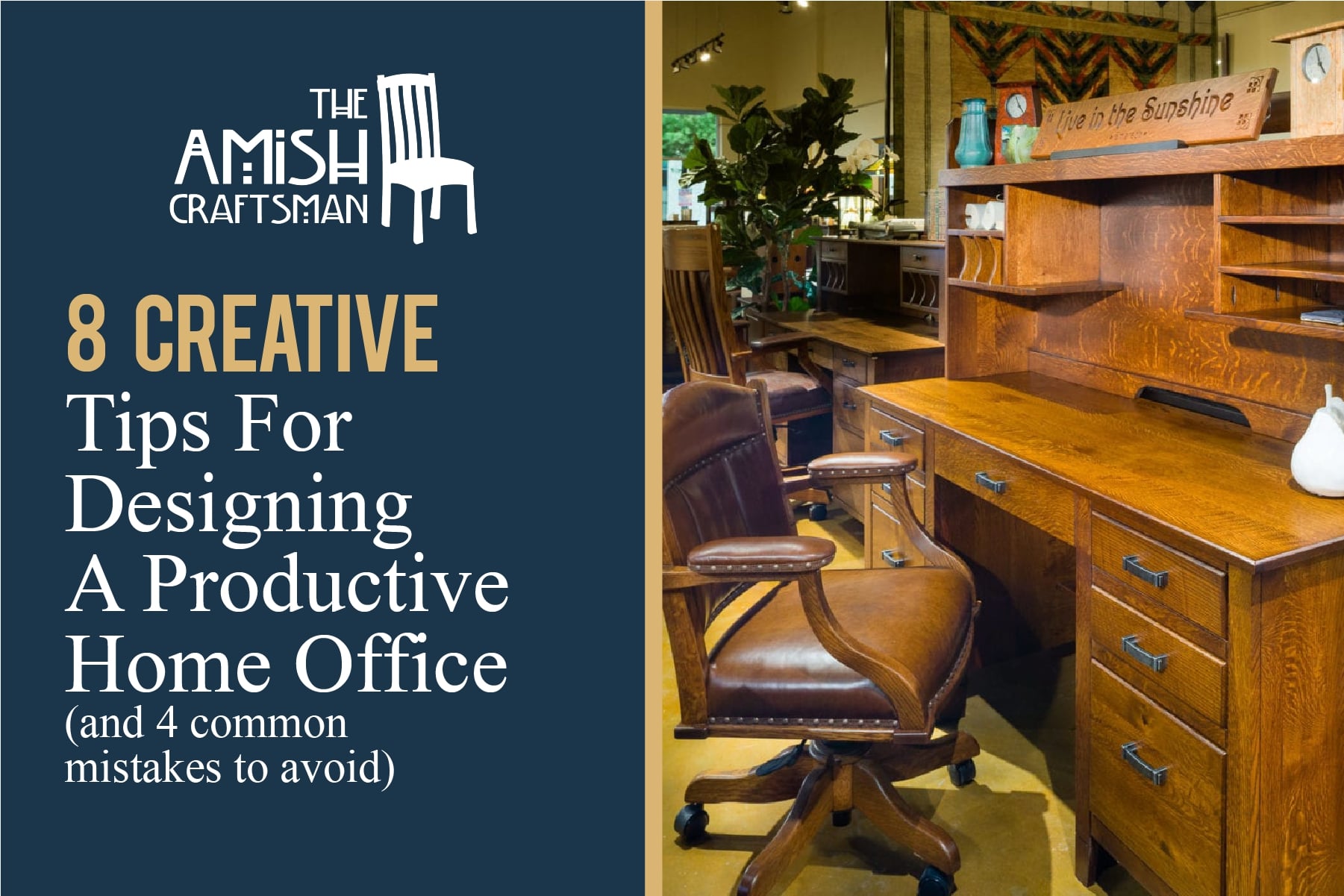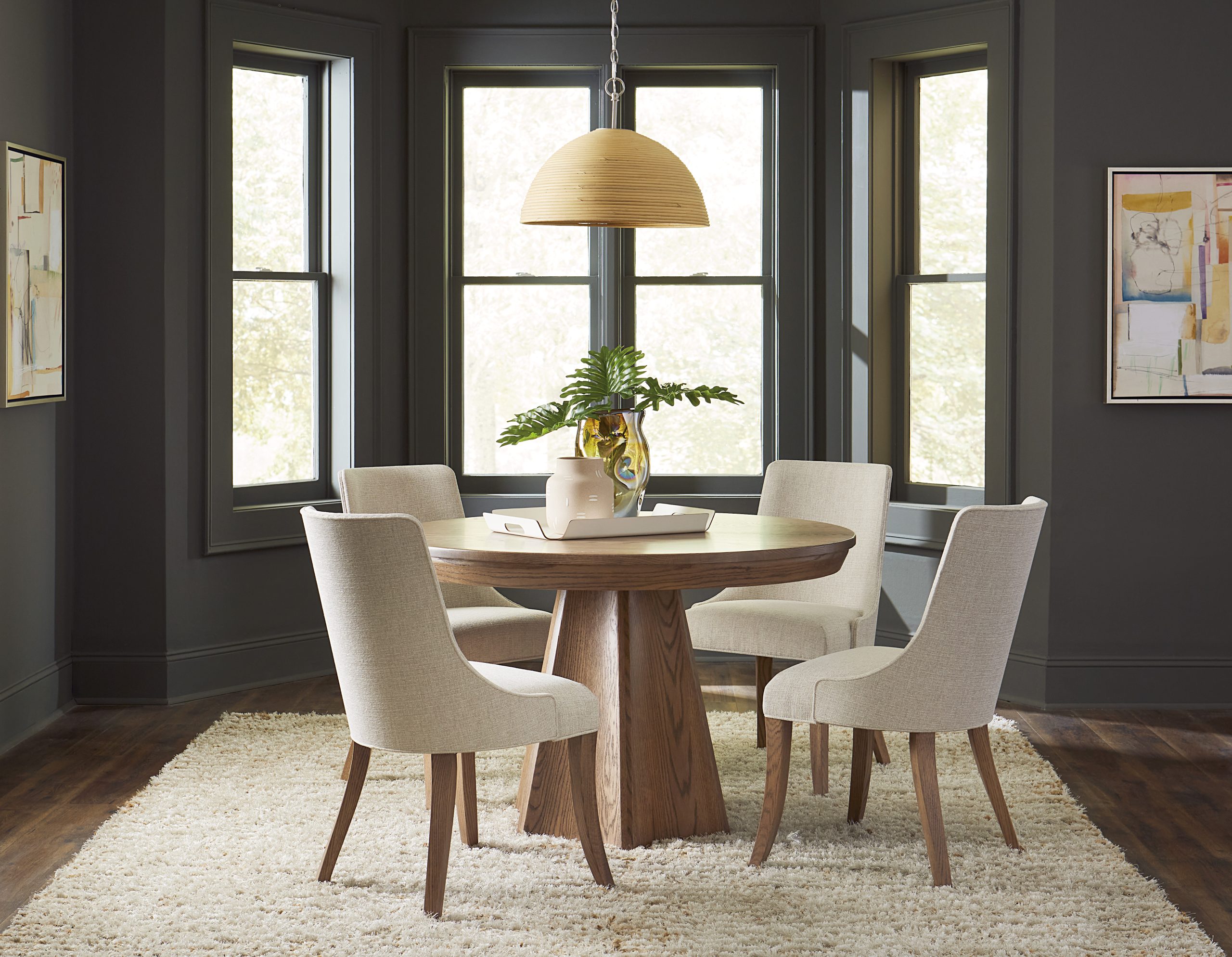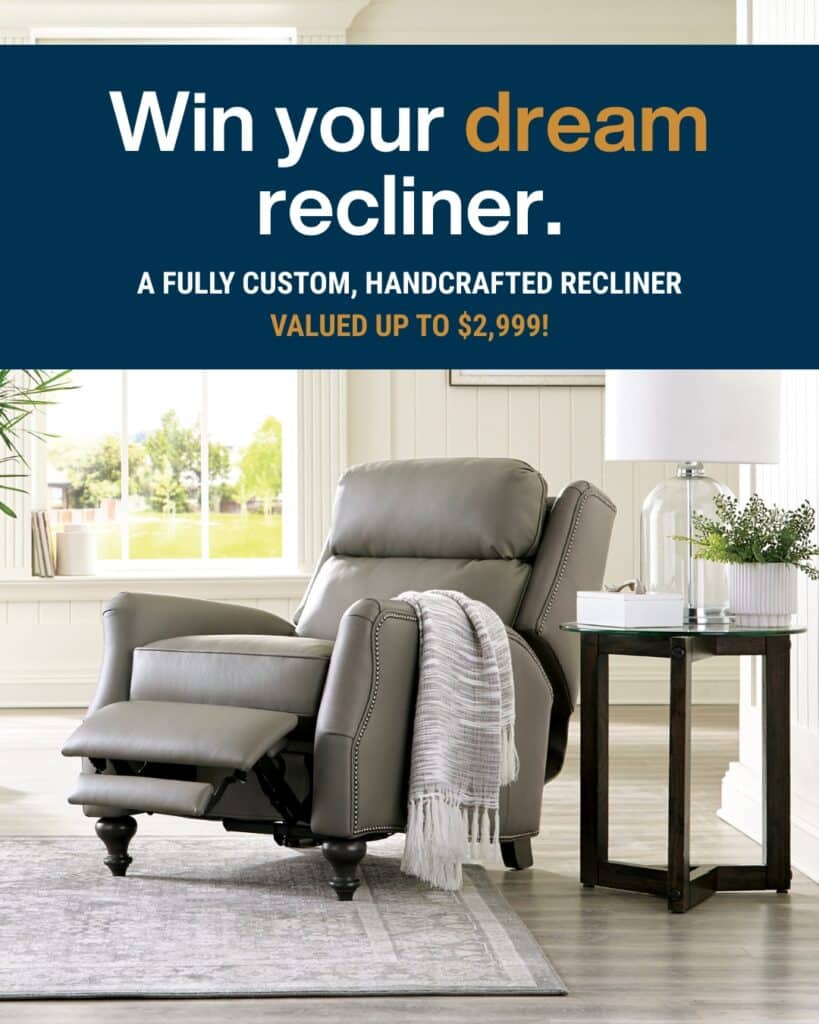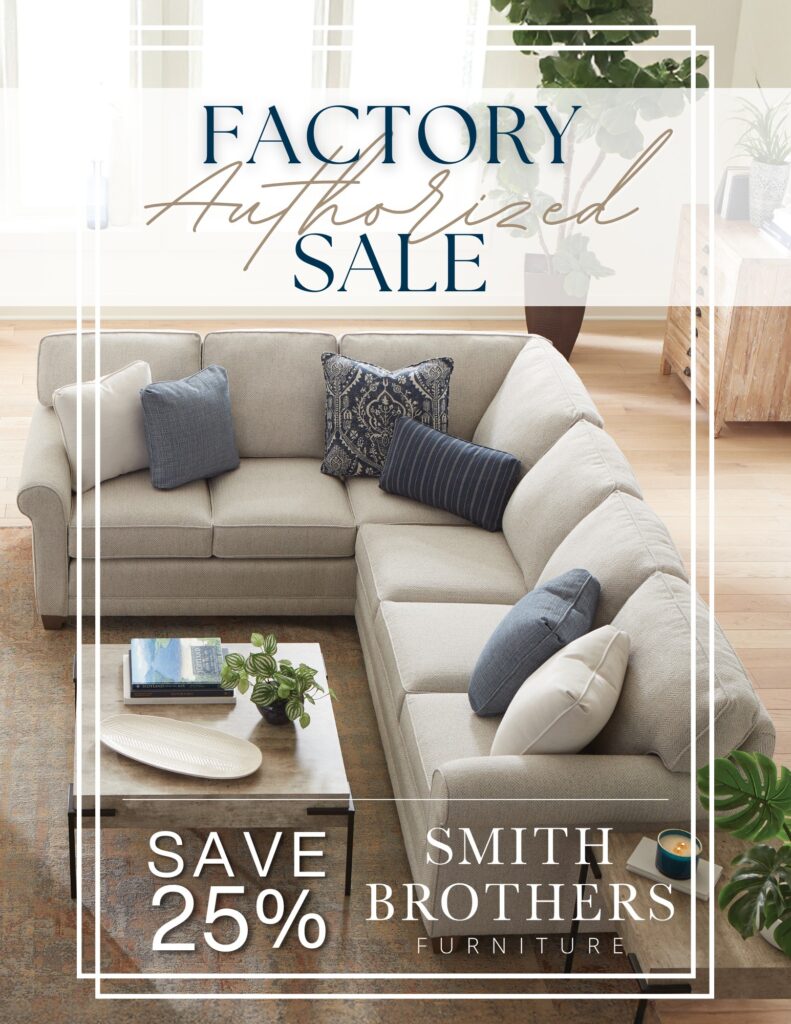In 2020, the American workforce experienced a dramatic shift in workspaces.
As Covid-19 slammed the country, businesses found their office doors closing and workers setting up shop in their own homes.
Some workers find the shift a positive one. You can wake up in the morning, make your own pour-over coffee, shuffle to your home office and get started on your work!
However, the transition has been very challenging for some:
- Playing children or distant vacuum cleaners create distracting background noise
- Desks get piled high with papers that don’t have a place
- Unattractive backgrounds are embarrassing for client and team meetings on Zoom
- It’s hard to find the motivation to get out of your comfortable pajamas
- Inadequate office furniture creates frustration and maybe even physical issues like back pain.
In short, it’s a struggle to stay productive and professional while working from home!
At The Amish Craftsman, we know just how you feel. You deserve to feel comfortable working from home while staying focused and productive.
That’s why we’ve written this article on designing a productive home office. As a bonus, we’ve included a few mistakes you should make sure to avoid when working from home.
Ready to go? Let’s get started!
Table of Contents
Why Working From Home Is Here To Stay
Like we already mentioned, most employees have enjoyed the opportunity to work from home.
In fact, remote workers report a Workforce Happiness Index of 75 out of 100, compared to 71 for in-office employees. And, remote employees are more likely to report being satisfied with their jobs than office-based workers (57% vs. 50%).
What’s more, 7% of workers say that the ability to work from home is so important that they are willing to take a 10% to 20% pay cut if they can work remotely.
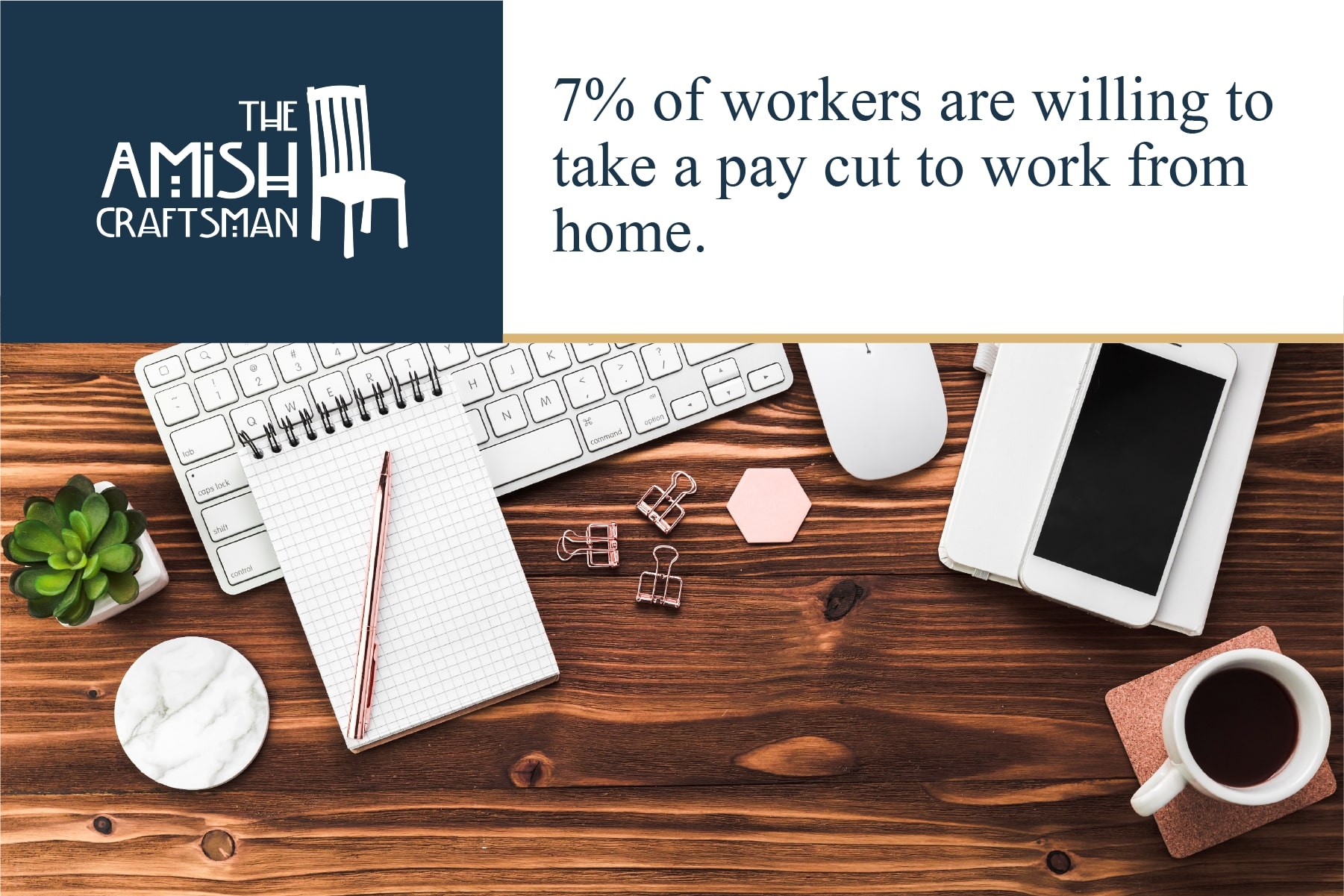
But it doesn’t stop there – many employers are also beginning to see the value of working from home.
After all, a lot of people are pretty happy working from home, and happy employees usually stay with their companies for longer. The longer an employee stays, the more experienced and valuable they become.
Furthermore, working from a home office can support employees’ mental health.
Why?
Because flexible work options create better mental health. In fact, employees without access to flexible work are nearly two times more likely to have poor or very poor mental health.
Perhaps that’s why over 80% of company leaders plan to permit remote work after the pandemic and why an Upwork study predicts that 22% of the American workforce will be remote by 2025.
So what’s the bottom line?
Working from home is probably here to stay – so if you work from home, it is well worth your time and energy to design a home office you love to work in.
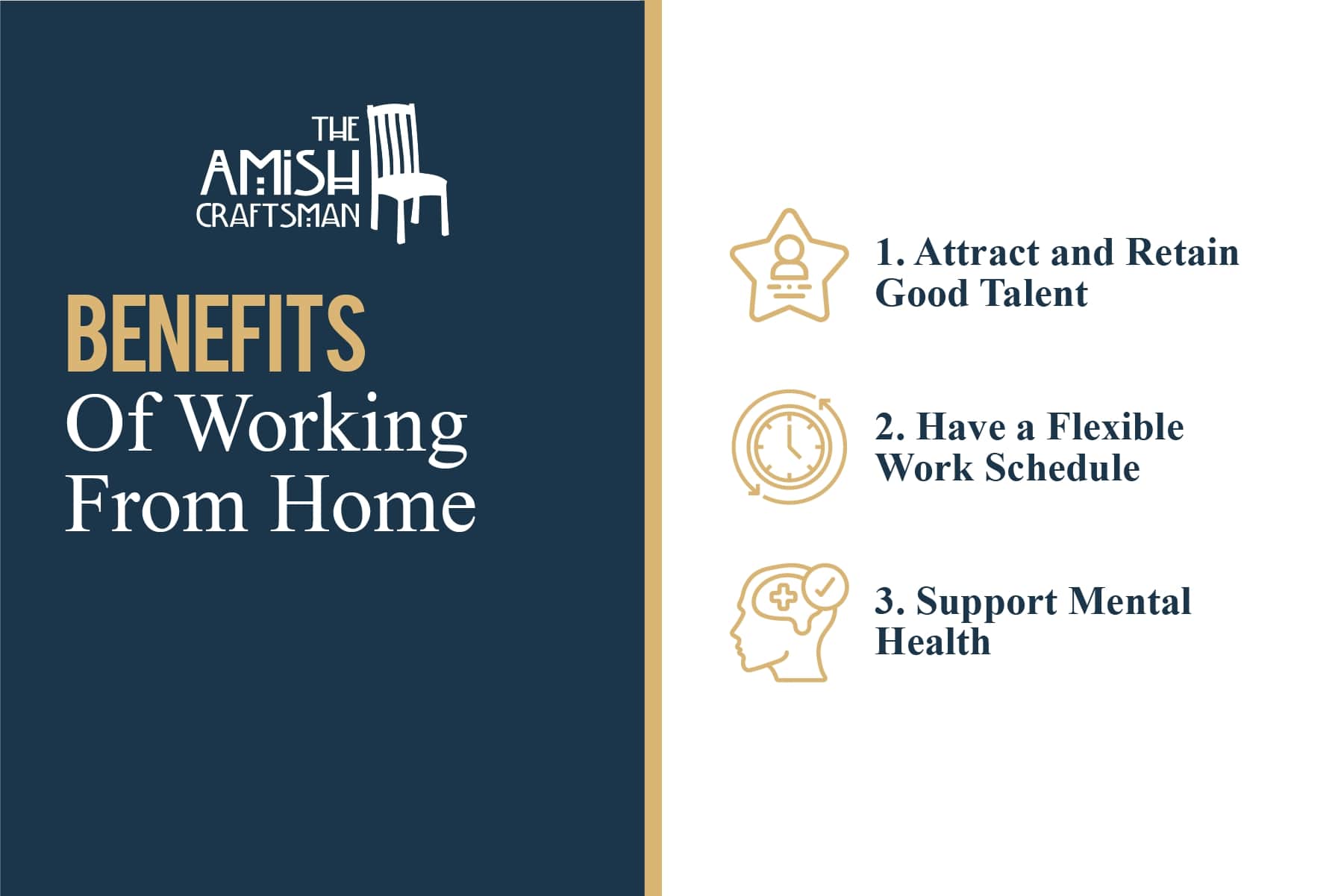
Why Work Space Matters
If you are working from home, you can do whatever you want–you could work on the couch, or even in bed if you wanted! Do office space and layout even matter?
Yes, they do.
Science tells us that details such as our surroundings have a definite effect on how we function.
For example:
Have you experienced the feeling of invincibility that comes with buying a new product?
If you love basketball, a new pair of sneakers can inspire you and make you feel better at the game.
Of course, your skill level has not changed at all – but the new shoes make you think it has. And as a result of your increased confidence, you DO play better!
In other words:
The phrase “dress for success” is true – and research psychologist Jeffrey L. Magee has proven it.
Magee surveyed over 500 firms to assess the impact of dress in the workplace. His studies concluded that continually relaxed dress ultimately leads to relaxed manners, relaxed morals, and relaxed productivity.

We shouldn’t be surprised!
Just think about your own experience:
You might wake up feeling groggy, stumbling around the house in sweatpants and a t-shirt – coffee is your only highlight. The day seems blurry, and your ambition is low.
But take a few minutes to get dressed, and the results are wondrous. It’s as if you just drank another cup of coffee!
It’s incredible what a simple outfit can do. Button up that shirt, and your whole mood shifts. Tie up those oxfords, and you’re ready to conquer the world! The sky is brighter, and your energy spikes.
The same goes for your home office space!
Does your home office double as storage space for your children’s toys or a man cave? Your work will inherently feel invaluable, and you’ll be less motivated to work.
Is your workspace cluttered with dirty laundry, boxes of out-of-season decor, or household trinkets? Your brain probably won’t be as clear and you won’t be as productive.
Alternatively, a simple, organized desk saves time, establishes you as a professional, clears brain space for creativity, and reduces stress.
At the end of the day, those who take thought for the spaces where they work instead of simply plopping down on the couch are the ones who are more productive and successful.
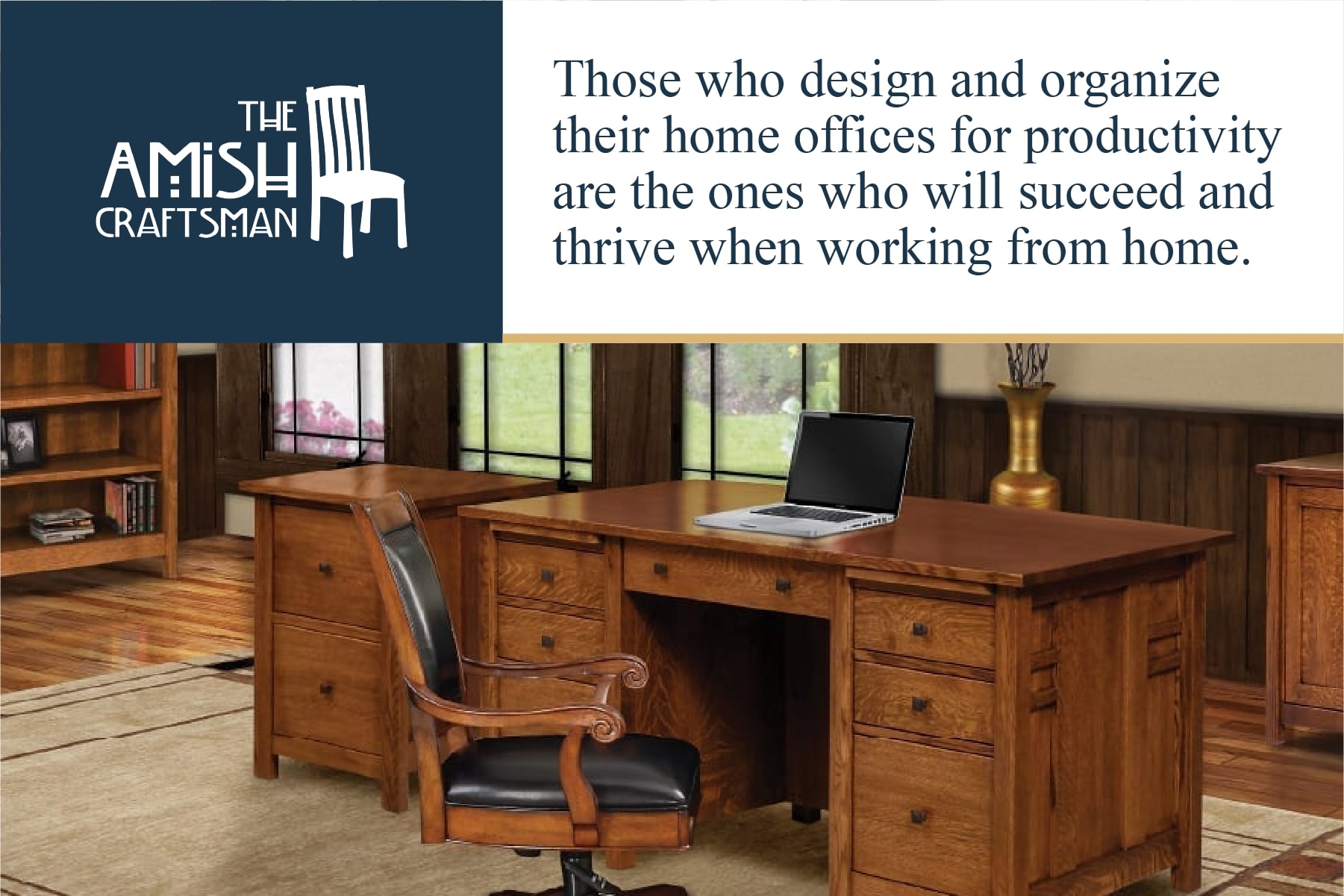
Those who don’t optimize their home office space tend to lag behind and struggle to stay focused and productive.
You want to be one of the productive ones – so let’s figure out how to make that happen with a home office designed for efficiency.
Common Mistakes In Setting Up A Home Office
Before we get into the specifics of designing a home office where you can be a productive professional, let’s explore a few mistakes you should avoid.
Mistake #1: Thinking You Can “Tune Out” The TV Screen
A lot of people think they can ignore the distractions that surround them. But while you may be able to resist the gaming consol or TV for a while, you’ll probably crack eventually.
Discipline is like a muscle – that means you can strengthen it, which is good. Unfortunately, that also means you can wear it out if you use it all the time. If you use it all resisting temptations that are sitting right in front of you, you won’t have as much left for getting important things done, and your focus won’t be as good as it would be if you just removed the distraction completely.
So don’t deceive yourself and don’t waste unnecessary energy saying no to temptations. Do yourself a favor and get rid of unnecessary distractions in your home office.
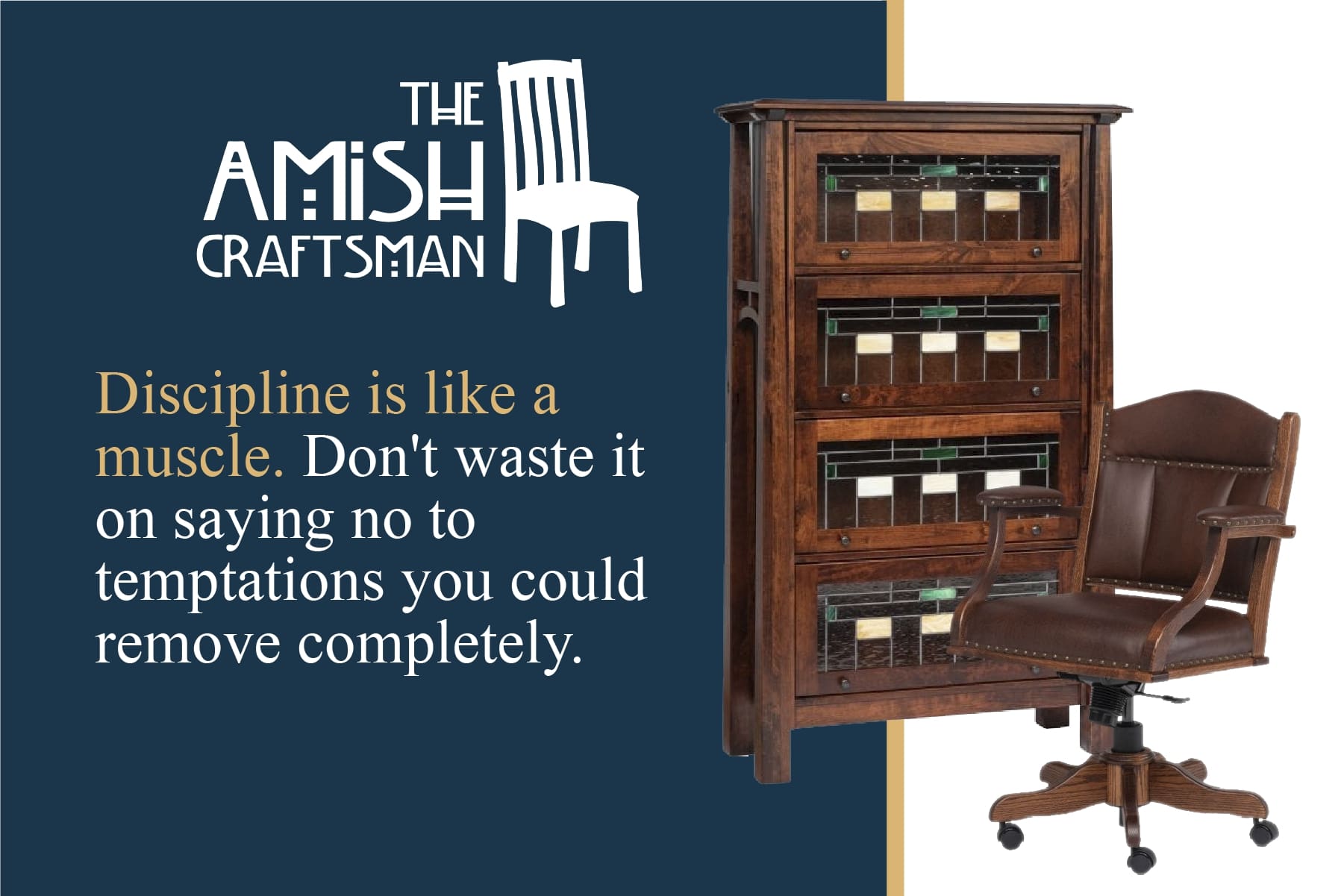
Mistake #2: Inadequate Storage Components
In an era in which many people choose to go paperless, home office storage seems less critical.
But don’t be too overconfident!
One international survey showed that workers who have gone paperless lose up to two hours a week hopelessly searching for lost digital documents.
And some tasks simply are much more effective when done on paper. Also, fun fact, writing by hand increases creativity over writing on a screen.
If that’s not enough, many legal and important documents must have a physical storage space.
And what about your “non-work” materials like tax documents, a favorite book, or papers from a non-profit you are helping with?
We like the way it’s said in The Harvard Business Review: “When our space is a mess, so are we.”
We’re all for minimizing storage space, but don’t get fooled by thinking you can get away without it. A file cabinet or a desk with a few drawers is a valuable addition to your home office.
A storage cabinet with doors or drawers can help your space look neater if you have lots of things to store, since then you can close the doors and not see the clutter.
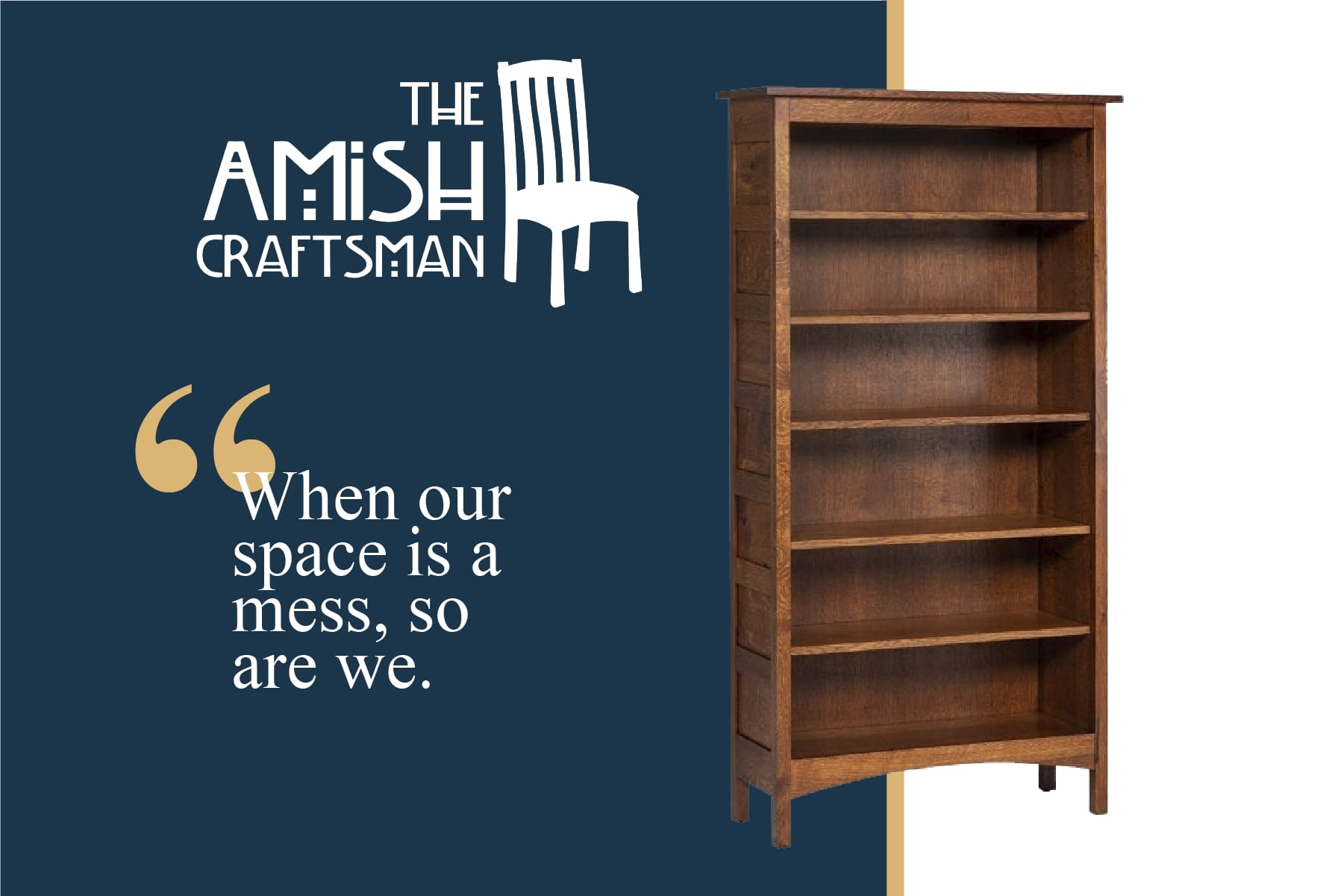
Mistake #3: Prioritizing Form Over Function
Let’s be clear: having a beautiful home office area is very important! Walking into a beautiful office makes you want to be there. So please, consider how you will make your home office attractive.
Just don’t place beauty on a pedestal.
Most of the stunning photos you see on Instagram and Pinterest are not real, lived-in, and used offices. And if they are, they were likely prepared specifically for that picture.
Getting home office inspiration from social media is perfectly acceptable – but don’t expect your space to look exactly like the pictures you see. For one thing, they aren’t really lived in, and for another, they were probably staged by trained designers who have devoted their lives to creating beautiful, perfect spaces.
You can read our blog on stylish and fun design if you want more information on our ideas for making a room beautiful!
Mistake #4: Inadequate Wire Management
Managing all the wires attached to devices in your home office can be a major fiasco, especially if you have multiple monitors and appliances. If you don’t plan ahead, you’ll probably have “wire spaghetti.”
You’ll want to make sure that your desk is situated near an outlet and at a place where you can hide wires if necessary.
(This is another strike against the trendy “middle-of-the-room” desks on many social media sites.)
Here are a few ideas for you to manage your wires:
- Get as much wireless equipment as possible (wireless mouse, wireless keyboard, etc.)
- Get a desk that has wire grommets.
- Purchase cable organizers like fabric cord covers, adhesive cable clips, and a cable box.
You will thank yourself later if you take care of that confusing mess now!
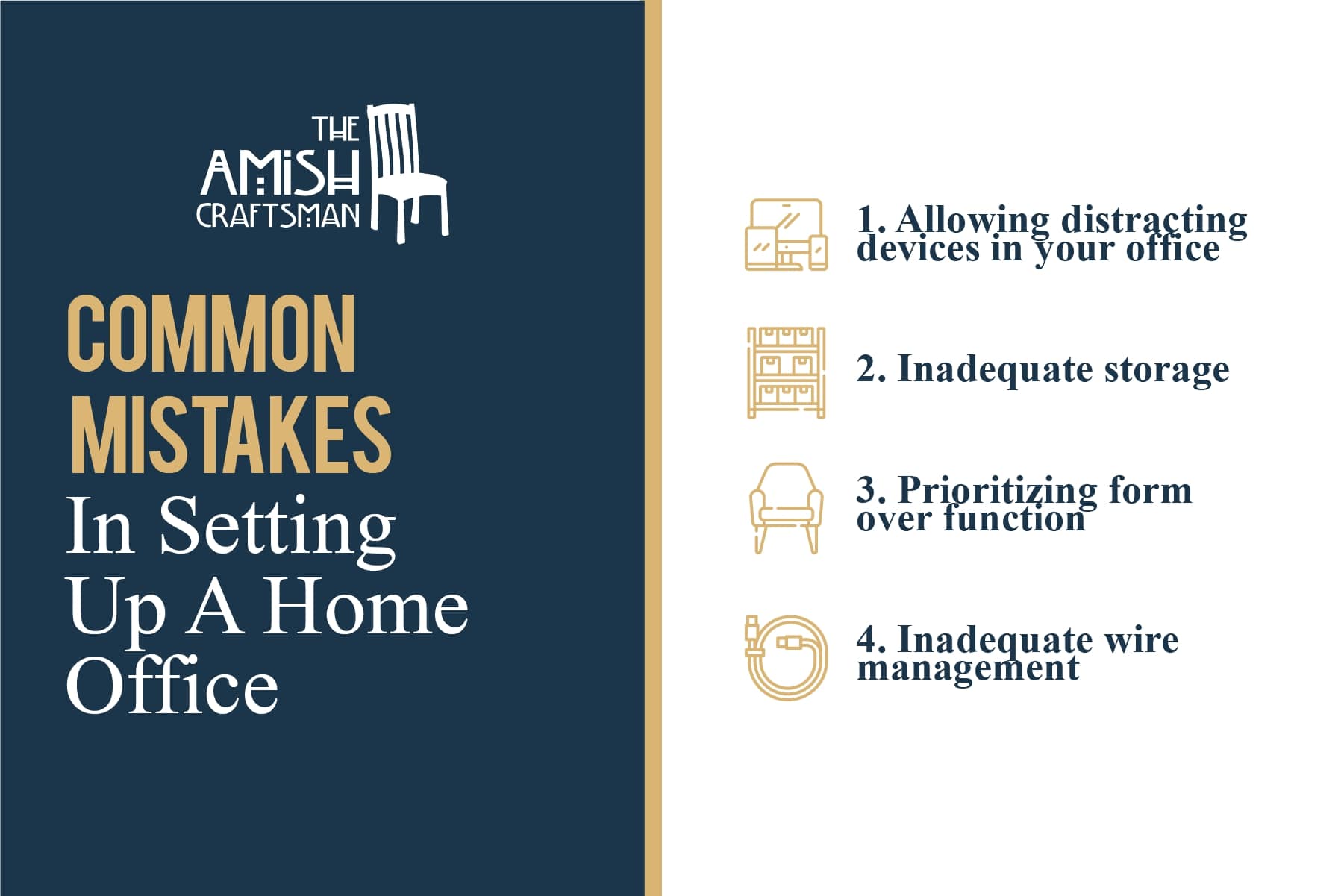
How To Design A Home Office For Productivity
Now that we know what NOT to do in a home office let’s take a look at what you can do to create a home office where you can get work done.
Questions To Ask Yourself
There are some basic tips that apply to almost every home office – we’ll explore this soon.
Yet, each person has different needs, so every home office will be slightly different. With that in mind, here are eight questions you should make sure to answer before designing your home office.
- How much desktop space do you require?
- What kind of storage do you need?
- What are your printing requirements?
- How much of your time do you spend on the phone, and, while on the phone, do you use other equipment?
- Do you require access to a library of books or samples?
- Are you untidy, and must your clutter be left untouched by other people in the house?
- Do you need to be able to host others in your office?
- Do you often need to access files? Would these work better for you as lever arch files on a shelf or drop-in files in a desk drawer, or are there so many that they would work better on your wall?
The answers to these questions will give you a good foundation for what you need in your home office.
Now, let’s get off to some universal tips for productive home offices!
Ensure You Have Good Lighting
One of the easiest things you can do to boost productivity is to improve the lighting in your home office.
Poor lighting causes eye strain, headaches, fatigue, stress, and a host of other problems, both physical and mental.
On the other hand, plenty of light boosts our mood and energy and therefore increases productivity.

Light is so vital that those who don’t get enough can suffer from seasonal affective disorder – a type of depression that comes from a lack of light.
Natural light is ideal, but if getting enough natural light in your home office isn’t possible, you should at least make sure you have adequate artificial light.
Choose Your Colors Carefully
In a study from the University of Texas, researcher Nancy Kwallek tested the impact of color on productivity by giving three groups of people clerical tasks to complete in three different rooms; each painted a different color.
The results?
Kwallek found that colors can elicit a variety of emotions, affecting your mood and focus.
“White doesn’t help us be productive, and most work environments are white, off-white, or gray,” says Kwallek. So instead of painting your home office gray or white, consider these colors:
- Red can help increase performance in people who have detail-oriented assignments
- Blue is calming and promotes communication, trust, and efficiency
- Green can enhance creative performance and might be a good idea where innovation and creativity are important.
Admittedly, different people can respond to colors in various ways – and painting your office walls green won’t automatically make you a creative person. And there is always the chance you could get tired of a color if you go too bold with it.
On the other hand, it makes sense to break out of the mold and optimize your home office for every drop of productivity you can get.
Control The Noise Level
Some people can handle more noise and chaos than others – but we all have a breaking point.
If at all possible, we suggest setting up your home office in an area that has clear boundaries from the rest of your home.
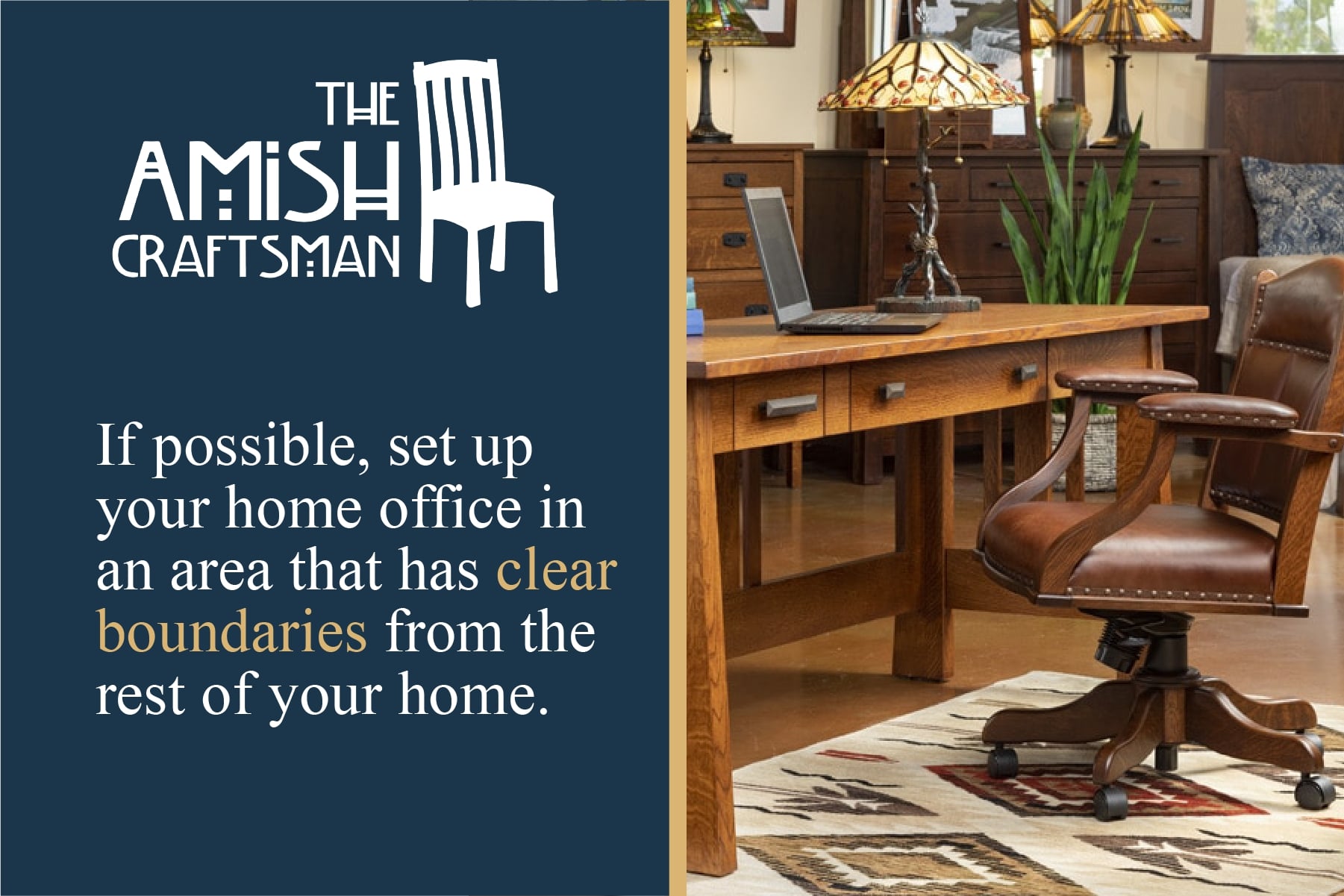
The rest of your house won’t suddenly go silent just because you started working from home. By having a room set aside for “work,” you can help your family respect your space.
And make sure you don’t overcomplicate this point.
You don’t need a separate wing of the house. Any room with one entrance door that you can easily close during work hours will suffice. Just so there is some barrier between you and the chaos.
Not only will this keep the noise factor down, it will also help you solve another working from home problem. That is that when you are working right in your house it can be hard to maintain proper boundaries between your work life and your home life. The lines can all start to blur together and then you aren’t sure when you are at work and when you are at home.
Having a dedicated workspace helps you block off your work life from your home life and helps you maintain proper boundaries between the two.
Select The Right Desk And Chair
You’re going to spend a lot of time in your office and at your desk, so investing in good quality furniture is entirely worth the cost.
Choosing a good desk: The desk is the cornerstone of any office. Sure, it’s where work happens, but it’s also a place where you can gather your thoughts and have a moment of stillness after a long day at work.
You’re going to want something you love – an office desk that is sturdy, beautiful, and functional.
We suggest you keep it classic and look at hardwood desks, with a spacious desktop and some storage. They don’t go out of style with passing trends and they will last for years – giving you something to hand down to your children.
Plus, you’ll feel like a true professional behind a classy wooden desk!
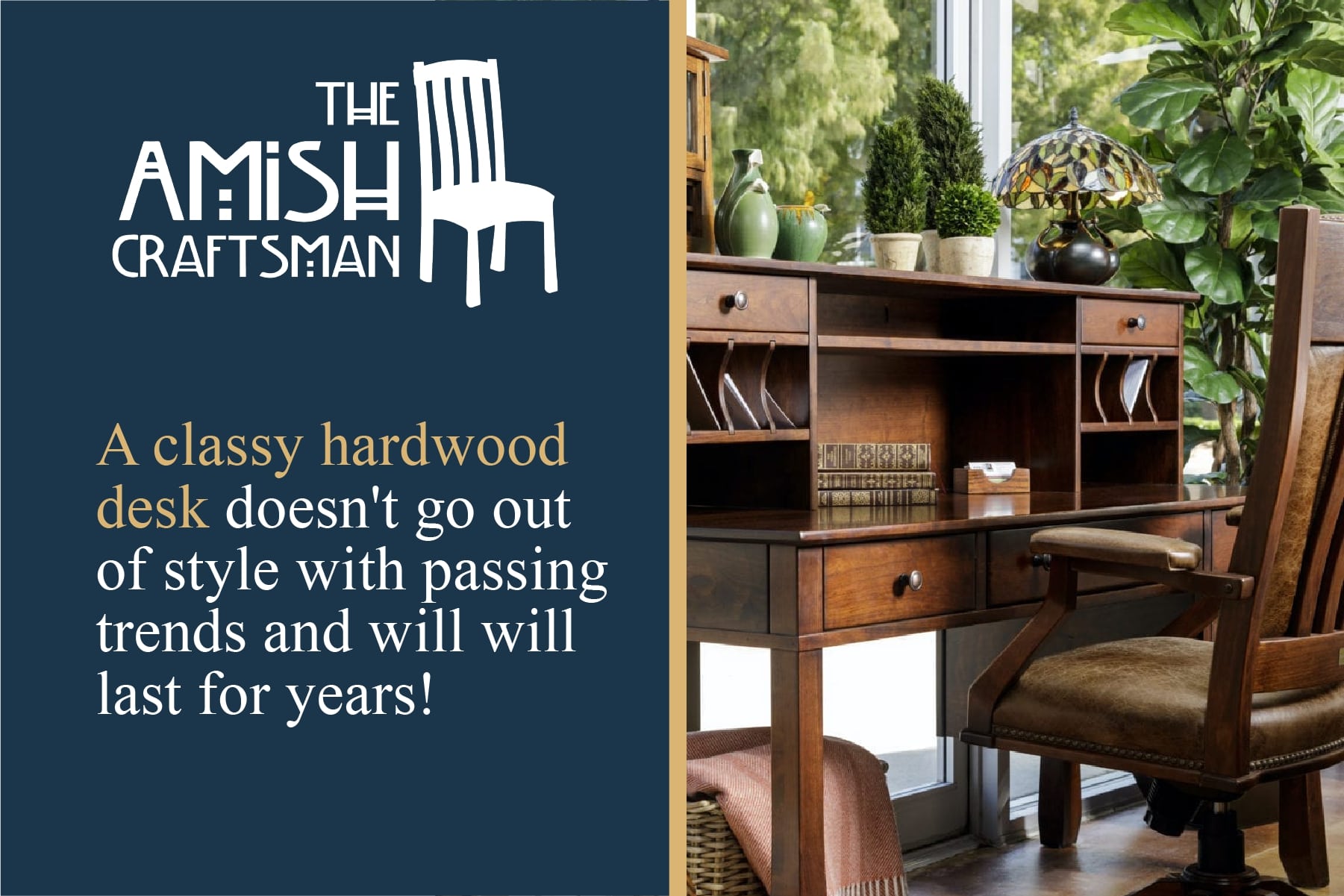
Choosing a good chair: Unless you want to deal with nagging back pain, you should choose an office chair that doesn’t compromise comfort and ergonomics.
Having an adjustable chair built with quality casters is also critical.
If you aren’t sure how to pick out good office furniture, you can read our blog: 13 Tips & Tricks To Help You Pick High Quality Furniture.
Incorporate Storage And Shelving
Remember, don’t short-change yourself on storage – you usually need more than you think!
That’s why we suggest including some quality bookcases in your office. Thankfully, they can serve for more than just storage space!
- A place to put valuable knick-knacks
- Decorate bookshelves to spice up the room
- Create an attractive background for Zoom meetings
- Inspire yourself with decor that means something to you
And of course, bookshelves should be used for books!
Reading a book is extremely good for you. Research shows that regular reading:
- Improves brain connectivity
- Increases your vocabulary and comprehension
- Empowers you to empathize with other people
- Aids in sleep readiness and reduces stress
Anyone that cares about being a valuable, productive professional understands the enormous benefits of that short list. So read books, and showcase them on your bookshelf!
Also, although you can find most book texts online these days, reading an actual, physical book is simply good for the soul sometimes.
Include Nature
You don’t need to rely on technology alone to enable your workspace.
Bringing nature into your home can make a big difference as well. Plants help give life to the space and remind us that there is a living, breathing world outside of our little “inside bubbles.”
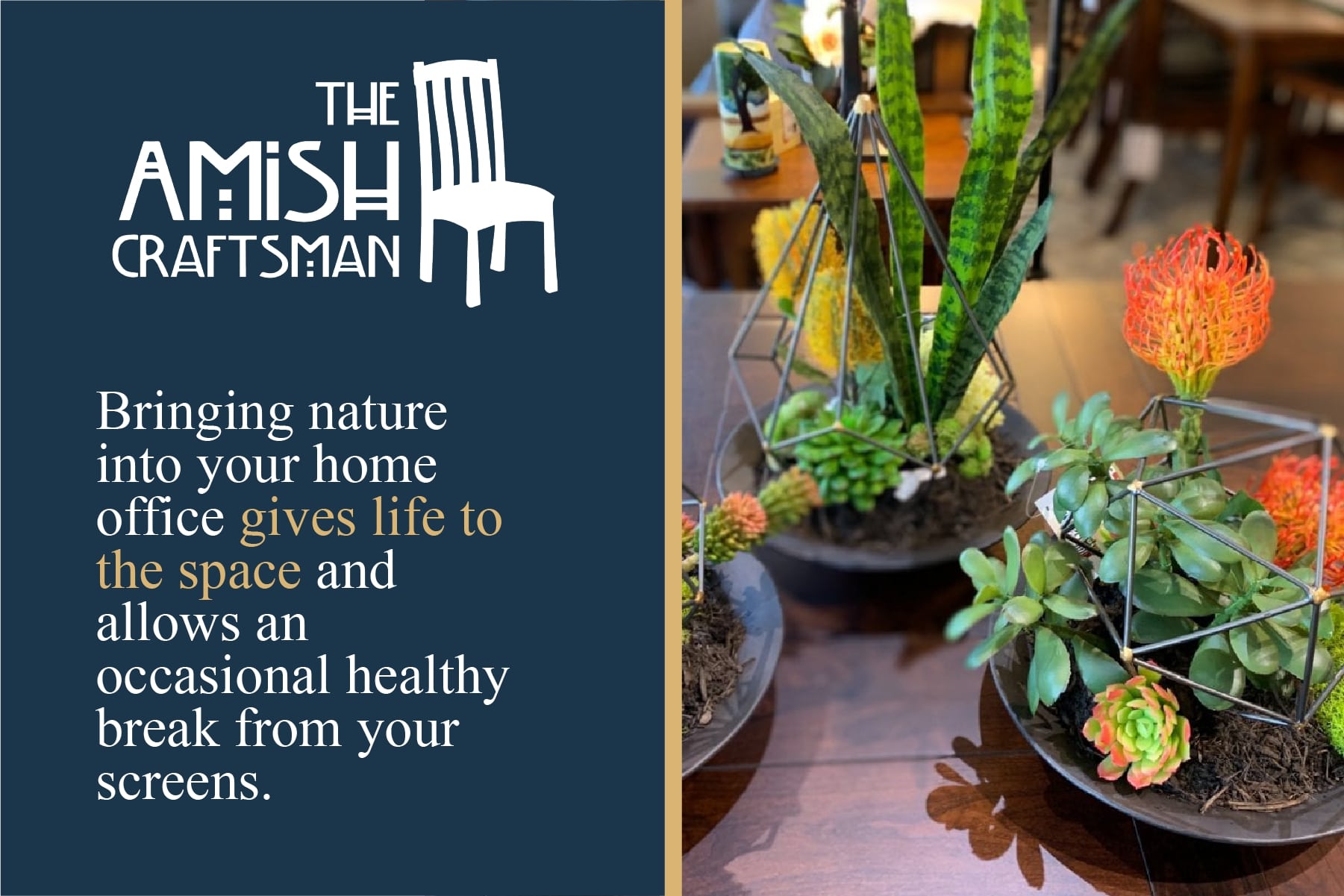
If you’re more of an animal person, you might consider placing an aquarium in your office.
Either way, the soothing effects of nature offer the perfect break from a screen. It’s best to look away from your screen for at least 20 seconds every 20 minutes – and plants and animals are the perfect things to enjoy when you look away from your screen.
Inspire Yourself
It’s hard to stick to what is important without constantly reminding ourselves of it.
That is why it’s important to design your home office to inspire yourself and help yourself remember the things that are most important to you.
For example, you might place a cherished possession, a piece of framed art, or a special photo that motivates you on your desk.
You could paint a quote on the wall above your screen or place a picture of your family on a bookshelf to remind yourself that you’re doing it all for them.
Whatever it is, you can design your home office in a way that spurs you on to chase down your goals!
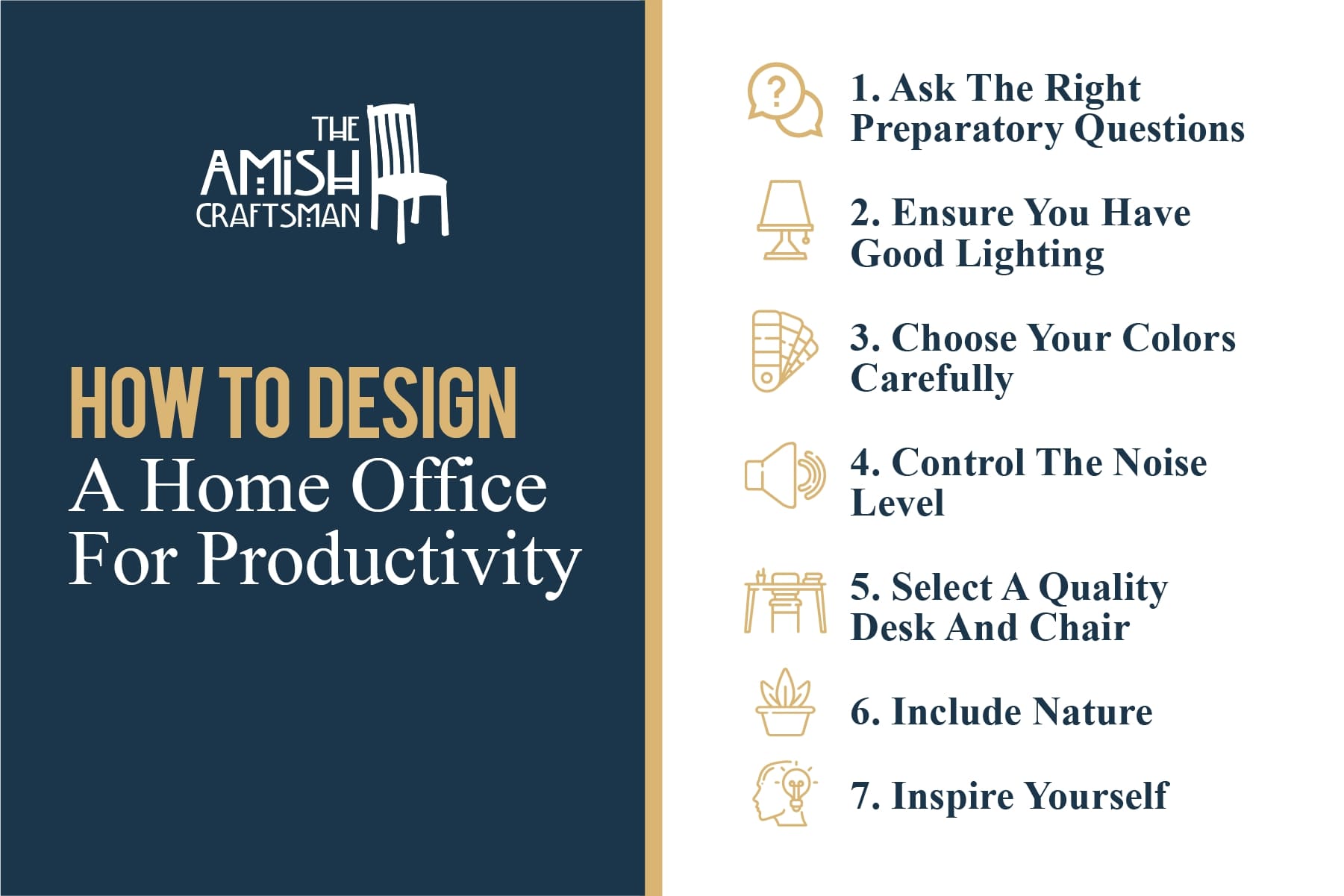
Conclusion
Remote work is here to stay, and our workspace has an effect on our productivity! That is why home office design is so important.
The Amish Craftsman is proud to produce American-made, custom-built furniture that lasts a lifetime. Whether it’s office furniture, bedroom furniture, a dining room table, or a living room sofa, we build it with the greatest attention to every single detail.
We have more than furniture, too! We also carry:
- Arts and Crafts Rugs
- Craftsman Rugs
- Lighting
- Home Decor
- And furniture for every room in your home!
It’s easy to work with us:
- Talk to a designer
- Customize your furniture
- Get it built and delivered
Or you can choose furniture from our stock models. If you are looking for custom furniture that fits your unique style, contact us today. We look forward to hearing from you!

